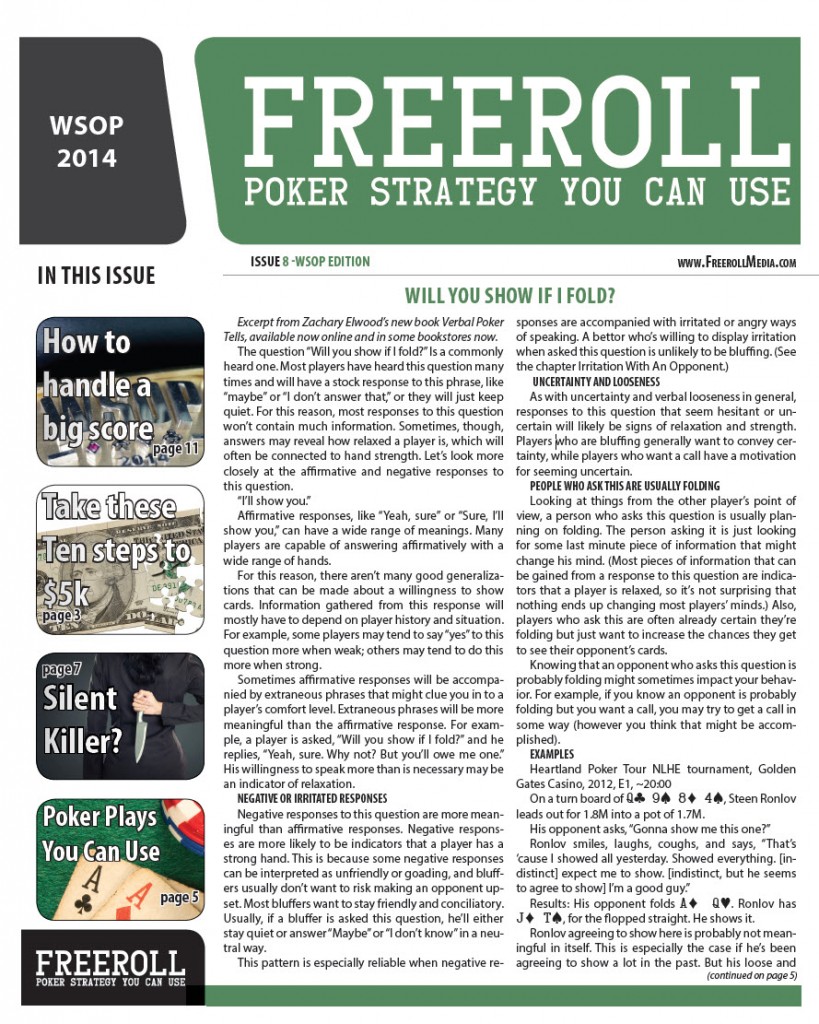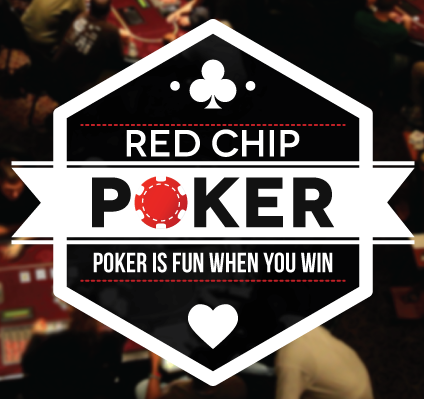Beware Story Equity
- By Jeff McIntyre
- February 20, 2014
- Comments Off on Beware Story Equity
 Poker being a game of incomplete information, equity assessment is a central aspect. Pot equity is assessed to measure the value of our holding, fold equity is measured by estimating how probable it is that our opponent(s) will fold, and showdown value appears when we have decent pot equity with a marginal hand.
Poker being a game of incomplete information, equity assessment is a central aspect. Pot equity is assessed to measure the value of our holding, fold equity is measured by estimating how probable it is that our opponent(s) will fold, and showdown value appears when we have decent pot equity with a marginal hand.
Properly assessing these equities is essential in making winning poker decisions. A poker hand calls for us to make numerous assumptions about our opponents’ hand ranges, our perceived ranges and about how everyone will act/react during play. This makes assessing pot equity one of the toughest skills a winning poker player must master.
But the goal of this article is not to tackle difficult equity estimation problems. My goal with this article is to convince you to follow the simplest of poker advice; I plead with you to stop adding value to your hands due to story equity!
What is Story Equity?
I coined the term Story Equity to describe the act of giving value to marginal hands due to the fact that we might have a good story to tell after losing a big pot with it.
Not only does story equity have negative chip/cash value, the “story” part is also vastly overrated. Your story is not nearly as compelling as you may think. Your poker buddies, tablemates, co-workers and relatives will be extremely underwhelmed.
Forms of Story Equity
In order to help you recognize the spots where you might commonly assigness Story Equity to your hand, here are the 3 most common forms.
Crying Calls
When a tilting player gets robbed by the deck, he wants the table to witness the visual evidence. Coolers and bad beats are easily the most common poker stories overheard in home games and card rooms. People can’t wait to share these stories with the world, and they need to get felted to make the story complete.
Sick Bluffs
Famous TV players like Phil Ivey, Tom Dwan and Gus Hansen have made huge bluffs look like the Holy Grail of poker strategy. Fact is, these players don’t bluff blindly; they pick optimal spots to do so. Bluffing someone out of huge pot and showing the table afterwards might sound like a winning play, but doing so primarily for the sake of having a story to tell is a losing proposition.
Pet Hands
This form of story equity is less common than the others, but it can be just as costly. Players fall in love with specific raggedy hole cards, and feel the need to overplay them.

Doyle Brunson famously loves to play 10-2 since clinching two WSOP bracelets with the hand. A few years ago, I saw Doyle confess on TV (I think it was during an episode of Poker After Dark) that he has lost tons of money with his favorite hand. He feels like he has to play it to continue the story, and he pays dearly for it.
Personally, I have a weakness for 10-6. This started about 5 years ago when I was playing a session of heads up freeze-outs with a good friend of mine. Our table was two cardboard moving boxes and we were sitting on beer coolers playing in the empty house I was moving into the next morning. It was a weird session, and my anxious mood (I dread moving) had me begging for a light moment. When I played a very loose 10-6 in a huge pot and bluffed him on the river, I showed the bluff and hilarity ensued. My buddy overreacted and I rubbed it in emphatically. I now refer to 10-6 as being the nuts to anyone willing to listen. But the hand is a big loser for me and will continue to be so unless I let this story die.
Poker is a complex, psychological game that tends to present conflicting goals. Winning chips/dollars/tournaments should be the ultimate goal for any competitive player, but the journey often blinds us from the destination. The need to demonstrate our prowess or the frustration this beautiful game inflicts upon us can be overbearing. Fight these urges, and save the story telling for your losing opponents.


